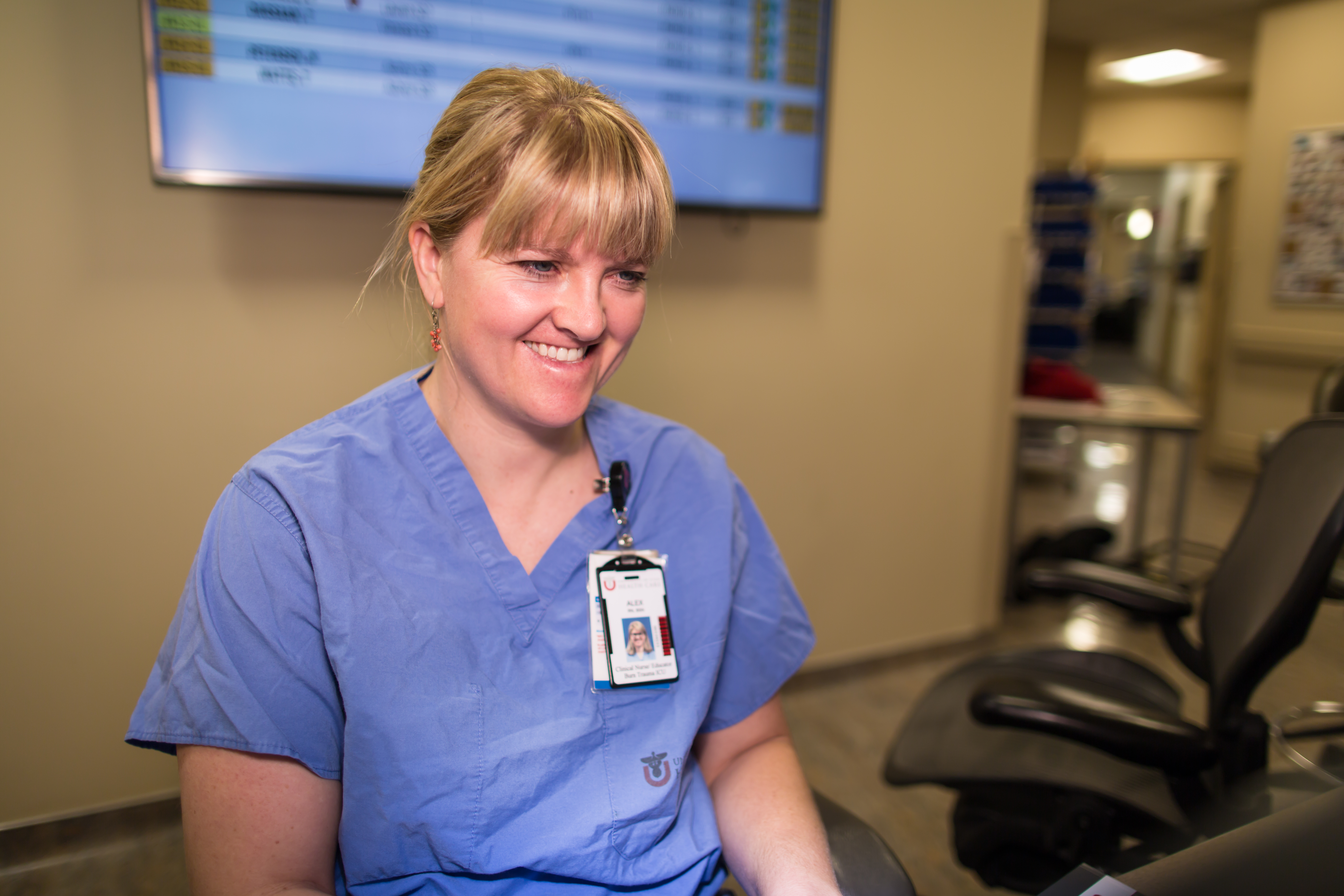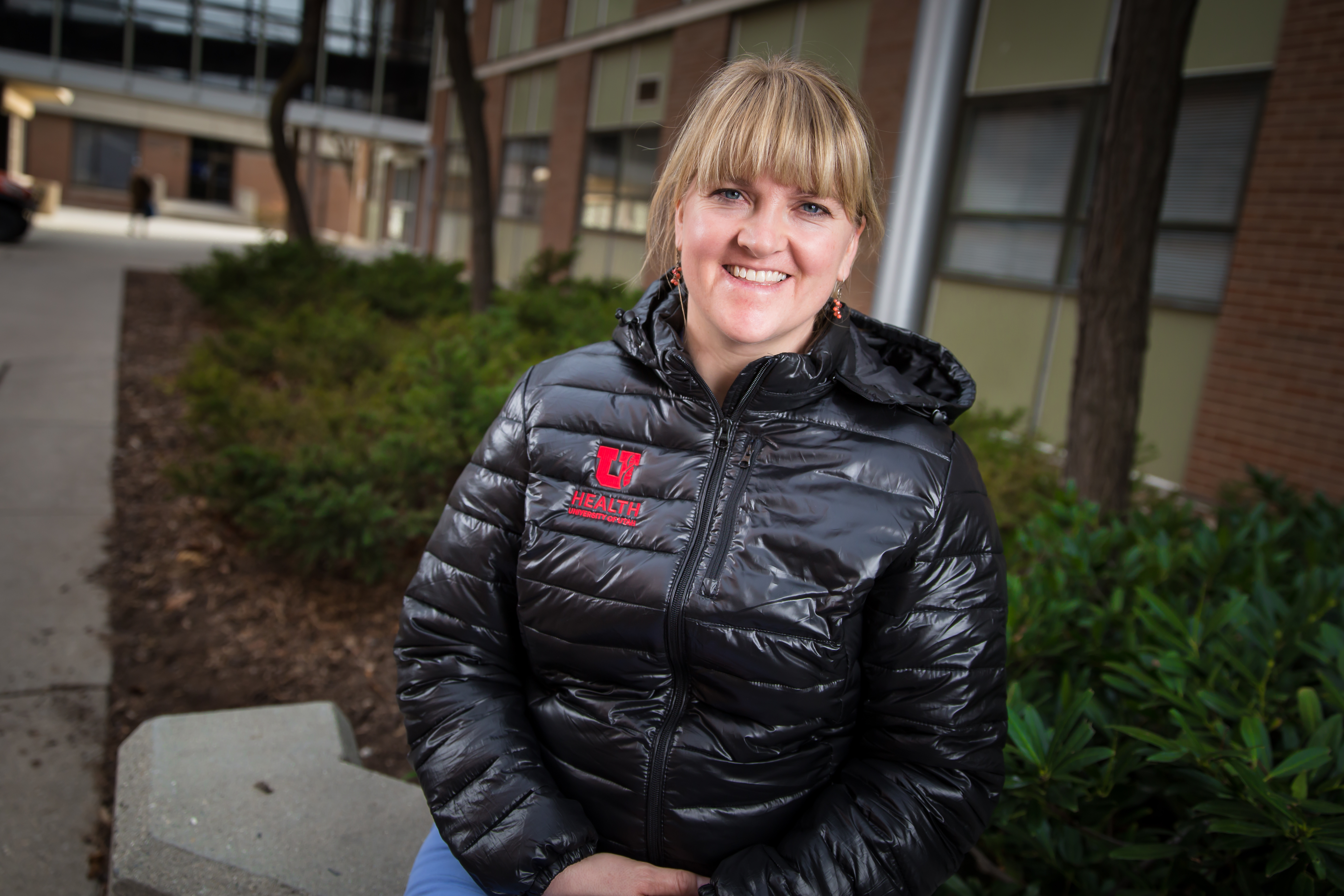Alex Wubbels is uncomfortable with all the attention.
Nearly a year after body camera footage went viral of her being handcuffed and shoved into a police cruiser by a Salt Lake City detective when she resisted his demand for a blood test from her unconscious patient, Wubbels still is a slightly uneasy role model.
She believes she did what any nurse would have done to protect her unconscious patient from an invasive blood draw. And she would do it again. But the reverberations of that day in July of 2017—both good and bad—have been persistent and more painful than she anticipated.
“In some ways, doing what I did that day was the easy part. It’s been everything since then that’s been really hard,” Wubbels says.
So she’s taken a break from work, from Facebook, from email. She’s working on an article for publication in a nursing journal. And she’s on a speaking tour of sorts—to the Graduate Nursing Student Academy (GNSA) in Atlanta in February, to the American Association of Critical-Care Nurses (AACN) in Boston in May, and at many places in between. She never turns down the chance to speak to Utah students. It’s a responsibility built into the mantle of leadership draped over her shoulders by circumstances and by choice.
Wubbels settled with the Salt Lake City Police Department and the University of Utah Department of Public Services for $500,000 last fall, and promptly made donations to the Utah Nurses Association (UNA), the American Nurses Association (ANA) and the American Association of Critical-Care Nurses (AACN). At the same time, she established a fund to help others gain access to body camera footage.
Those efforts on behalf of other nurses and the public have earned her the 2018 Honors for Nursing Dare to Care Award, which is selected each year by the Alumni Board of the University of Utah College of Nursing.
“There’s no road map,” she says. “We all have a fear of failure. And I can’t let this fail. It’s not about me. It’s about nursing as a profession and patient safety. There’s just so much more than me that this is about.”
As a member of the U.S. Olympic Ski Team, Wubbels has felt similar pressure before. A native of Colorado, she moved to Utah as a teenager to join Rowland Hall St. Marks’ ski program. After competing for the U.S., she enrolled at the University of Utah College of Nursing and graduated in 2009. The Olympics, she says, were an individual sport. This time, she feels pressure for a worldwide “team.”
“I feel like I need to keep the momentum going for the benefit of our profession,” she says.
Brad Wiggins, RN, Wubbels' supervisor at the Intermountain Burn Center, says she has always been an advocate for continuing nurse education and common sense healthcare policy. "This situation put her on a platform that she didn't ask for, but she is going to take this opportunity to be on this platform and make a difference for future patients and healthcare in general," Wiggins says. "This is going to carry forward for the rest of her career. That's a great thing for the medical community and, ultimately, a really great thing for patient care."
College of Nursing Dean Trish Morton, PhD, RN, says Wubbels has a unique ability to connect with staff nurses. At the GNSA conference, audience members waited 45 minutes to speak to her and take selfies.
“She has a wonderful opportunity to be a leader of nursing and advocate for the profession and for individual nurses,” Morton says. “She has no idea of her impact, but by telling nurses they would have done the same thing she did, she reinforces all the clinical and ethical values they learned in school and bolsters their sense of professional camaraderie. She just talks from her heart.”
American Nurses Association President Pam Cipriano, PhD, RN, says Wubbels’ example has advanced discussions about on-the-job safety and nurses’ role as advocates for their patients.
“Nurse Wubbels did everything right,” Cipriano says. “It is imperative that law enforcement and nursing professionals respect each other and resolve conflicts through dialogue and due process.”
During the 2018 Utah Legislature, lawmakers tweaked the state’s patient consent law in response to questions raised after the July 26 incident. Wubbels figures the only way to keep the issue at the forefront of the public’s mind and change policy so what happened to her never happens again is to keep talking about it.
“This is the culture of nursing,” she says. “Our most important job is to protect our patient.”
“I want to make sure this never happens again. I was very fortunate to work for an institution that had a policy. But there are a lot of nurses who work for institutions or companies that don’t have policies to deal with these kinds of situations. This law just gives us something to start with.”